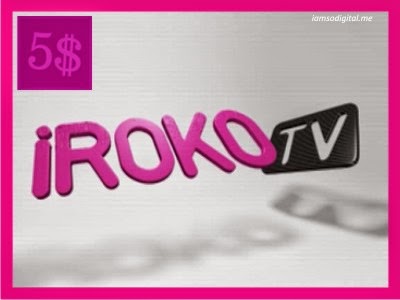VENDORS snake their way between cars in the Lagos traffic,
hawking the latest Nollywood DVDs to tired drivers. Nigeria’s film industry
churns out up to 50 titles a week. Most go straight to DVD to be sold on the
streets for the equivalent of a couple of dollars. But the market can be slow.
Taiwo, a hawker in the commercial capital, says that on a good day he might
sell five films. “When it’s quiet, maybe two.”
Nollywood is a big business—contributing 1.2% to Nigeria’s
gross domestic product and employing more than a million people—but the
distribution of its films poses a barrier to the industry’s growth. Sales of
DVDs account for more than 90% of revenue but filmmakers complain that poor
regulation of street markets leaves them open to piracy. That, combined with
often low sales volumes, means that little cash reaches their pockets.
The saving grace is that most of Nollywood’s output is
shot on a minuscule budget. Nollywood productions… are often filmed in just ten
days and cost some $40,000, yielding notoriously low-end content. “Making money
is tough, especially for film-makers who are increasing the budget, paying more
attention to the quality, and making movies that can travel,” says Obi
Emelonye, a director. “Distribution is hands-down the biggest problem... Solve
that, and Nollywood will explode.”
Across the world, the film industry has been threatened by
online distribution, which leads to plummeting DVD sales, falling cinema
attendance and Internet piracy. But Nollywood is hopeful that the Internet
could be the answer, not the problem.
Streaming services have been operating in Nigeria for
several years, but are only now beginning to gather momentum. The biggest of
those is iROKOtv, which has made some 5,000 titles available to online
audiences. Others such as Pana TV, which secured the rights to stream “Half of
a Yellow Sun”, a film based on a Nigerian novel, and iBAKATV are expanding
fast.
Jason Njoku, the British-Nigerian founder of iROKO, said
that when he first started buying streaming rights from Nigerian filmmakers
four years ago, the industry had almost no concept of online distribution. “It
was almost like I’d come from the future,” he says. Today online portals are a
crucial source of cash. IROKO, for instance, pays between $8,000 and $25,000
per film for a set period of time. Film directors like Mr Emelonye often sell
to several online platforms. Going online has “absolutely” made business more
profitable, he said.
It is also giving filmmakers the chance to export their
art. iROKO has more viewers in London today than in Nigeria. Caribbean and
Latin American audiences also lap up Nollywood films. Witnessing the appetite
for such content among diaspora communities, Africa Magic, a pay-TV channel
airing African movies and soaps, has also launched a streaming service for
Africans living abroad.
So far, video-on-demand services have struggled to create
much of a market at home, where power is intermittent and the vast majority of
the population does not have access to a computer. Streaming to the 100m
smartphones in sub-Saharan Africa is a mouth-watering prospect.
Most DVD vendors do not yet
feel a threat from streaming services. But even the hawker Taiwo admits to
watching Nollywood online. As Internet access rises, directors are hoping that
new distribution avenues will unleash the potential of Nigeria’s film industry.
It is a gamble, Mr Emelonye said. “But we have to take a risk.”
Source: The Economist

No comments:
Post a Comment